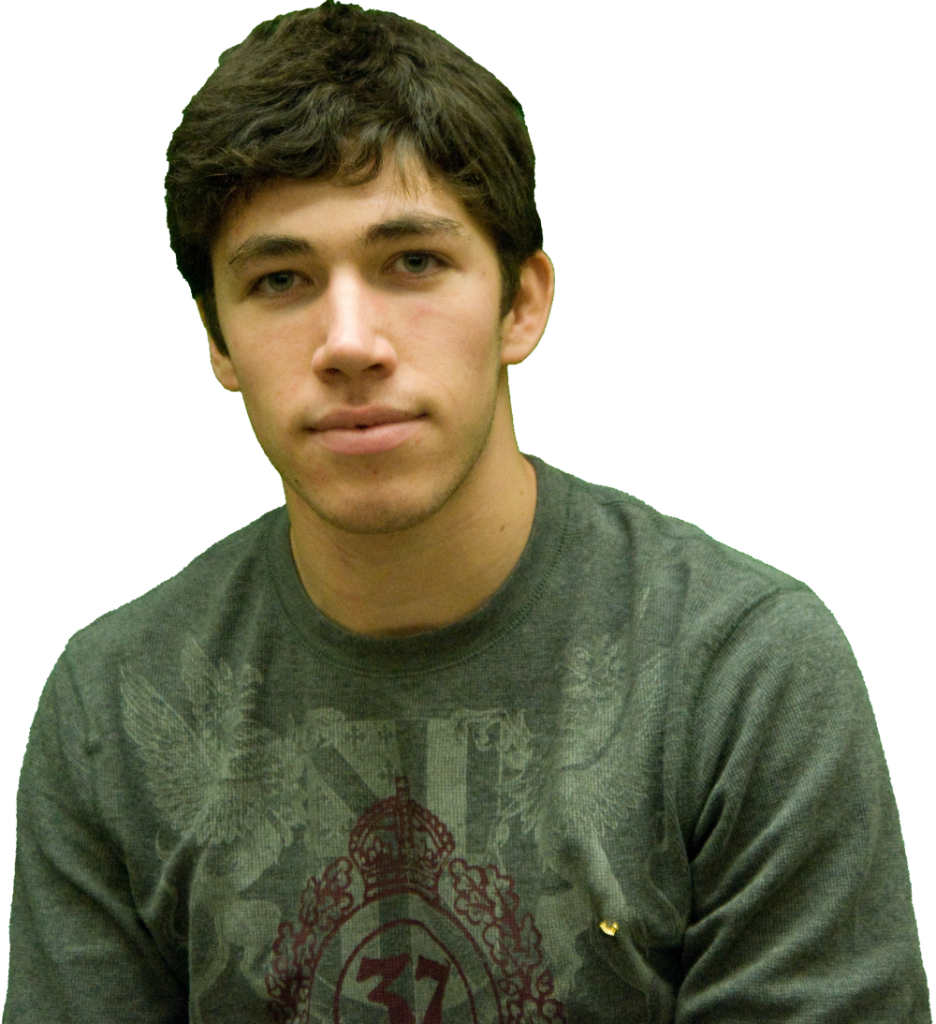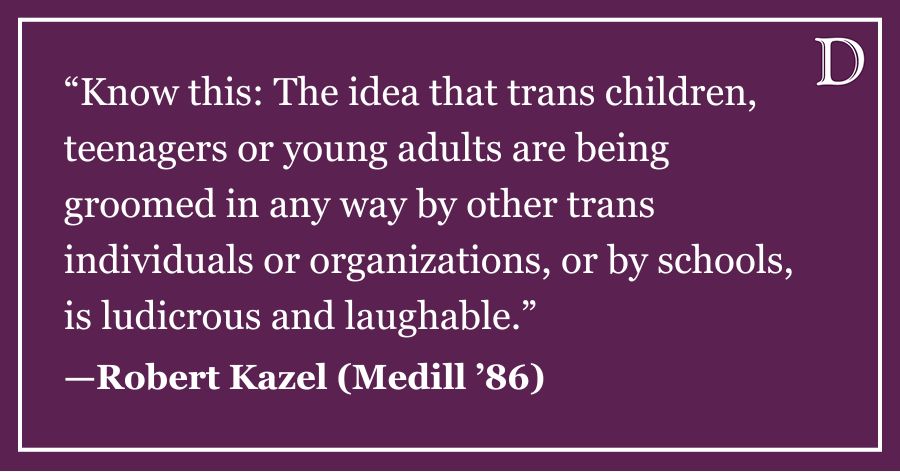In recognition of Holocaust Remembrance Day, Jewish and non-Jewish students alike walked Monday to remember the victims of the Holocaust, and I was incredibly moved by the experience. As I walked silently in a single file line with dozens of other students, the power of the moment was unavoidable. The fact that 35 Northwestern organizations co-sponsored the Walk to Remember event shows the wide-range belief in genocide awareness and prevention on our campus. Yet for Jewish students at NU, campus-wide support and inclusion was not always as evident as it was on Monday.
For decades, the University presented obstacles for Jewish students to attend. Until 1964, NU practiced an admissions quota on Jews, capping the number of religiously affiliated Jewish students per class. According to Rabbi Dov Hillel Klein of Tannenbaum Chabad House, until the 1980s, Jewish students still lied about their religion on their applications to get into NU.
Today, Jewish students make up about 20 percent of NU’s campus. Yet for a long time, life at NU for Jewish students did not reflect their overall size and presence on campus. A Holocaust awareness day was not even considered, let alone feasible, before major changes were made to campus life.
When Rabbi Klein came to campus in 1985, NU lacked a kosher meal plan and Jewish programming on campus was sparse. His work along with NU’s Fiedler Hillel to promote Shabbat services, Jewish social events and celebration of holidays has transformed NU into a welcoming place for Jewish students. On a typical Friday night, Hillel will pack its dining room for Shabbat dinner. Chabad House used to attract 80 to 100 students for Shabbat dinner until its disaffiliation with the University this year.
Klein was also instrumental in bringing a chapter of Alpha Epsilon Pi, an internationally Jewish fraternity, to campus. Yet, this chapter was officially chartered in 2000, much later than many of NU’s peer institutions. During the last decade, Jewish social programming has flourished, marked by the success of Hillel’s Freshman Fest, a Jewish a capella group in ShireiNU and the Jewish Theatre Ensemble. NUhas a Jewish president in Morton Schapiro and possibly the next Associated Student Government president in Weinberg junior Aaron Zelikovich.
NU’s Walk to Remember event should be seen in this context of a thriving Jewish community here. Yet the facts remain that there are still obstacles that face Jewish students on campus. One of those obstacles is electrical engineering Prof. Arthur Butz, who is a well-known Holocaust denier and author of “The Hoax of the Twentieth Century: The Case Against the Presumed Extermination of European Jewry.”
While Butz has never mentioned his views on the Holocaust in his engineering classes, protest over his views erupted in 2006 after Butz voiced support for Iranian President Mahmoud Ahmadinejad’s denial of the Holocaust. While I believe in the First Amendment and the freedom of speech for professors, Butz’s continued presence at NU reflects the importance of remembering the Holocaust each year on Yom HaShoah, or Holocaust Remembrance Day. Holocaust deniers can only gain traction and followers if people are not present to meet them openly and reject their claims. Genocide commemoration not only honors the memories of the victims but is the best way to ensure that the mantra “never again” remains vital to humanity. It is sad to say that despite humanity’s best efforts to prevent genocide, decades after the Holocaust we remain powerless to secure protection for the persecuted and the weak.
As the remaining survivors of the Holocaust dwindle every year, the next generation will grow up without the living representations of the Nazi atrocity. Much as NUs history of treatment toward Jews will fade into memory, Holocaust stories of survival will be lost unless we actively seek to remember them as we did on Monday. While the past may be bitter and painful, its continued presence in our daily lives is the only way to secure a better future.
Jonathan Kamel is a Weinberg freshman. He can be reached at [email protected]. If you want to respond publicly to this column, send a Letter to the Editor to [email protected].














